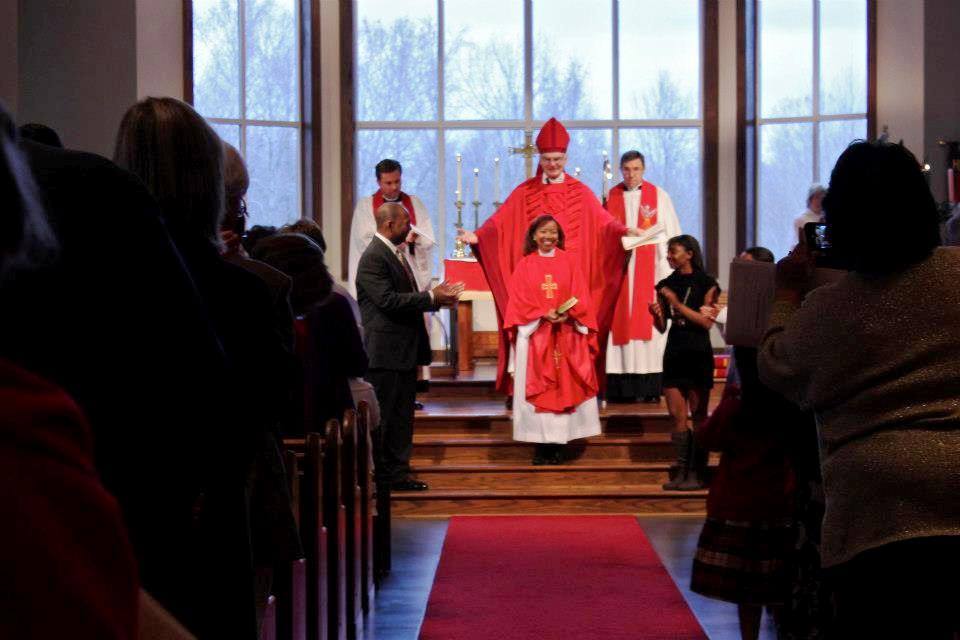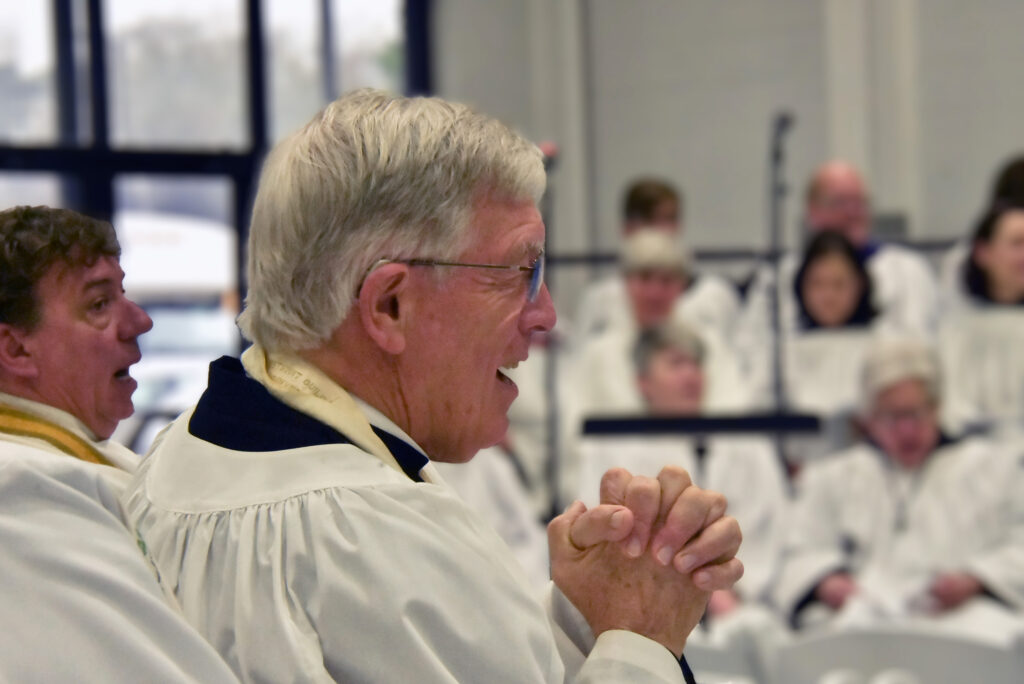Preparation is a big part of life for the Rev. Dr. Dorothy Sanders Wells. Starting when her two daughters were young, she established a habit of cooking once a week—for the entire week—that she maintains to this day.
Cooking is a hobby, not just a chore for Wells. Now that her daughters are adults, she loves trying new recipes from various cuisines—Middle Eastern, Italian, Indian, to name a few—and always cooks healthy meals for herself and her husband, Herb. During the pandemic, she and her oldest daughter held informal competitions with each other over Zoom, each preparing the same dish to see whose would turn out better.
“Everybody was laughing because we’d share on social media—the meal of the day and what it looked like in in my kitchen versus hers,” says Wells. “‘Who made the better presentation of this meal today?’”
 The past ten years of her ministry at St. George’s Episcopal Church in Germantown, Tennessee, just outside of Memphis, have similarly been a period of preparation, as were her 18 years practicing law before being ordained to the priesthood. There is a deliberate patience to the way she approaches things, large and small, that has served her well through a fascinating journey.
The past ten years of her ministry at St. George’s Episcopal Church in Germantown, Tennessee, just outside of Memphis, have similarly been a period of preparation, as were her 18 years practicing law before being ordained to the priesthood. There is a deliberate patience to the way she approaches things, large and small, that has served her well through a fascinating journey.
Growing up in Mobile, Alabama, Wells felt drawn to something spiritually that she couldn’t quite seem to find in her parents’ religious tradition. They were die-hard Baptists (her maternal grandfather had even been a pastor), but the young Wells felt out of place in their church. She didn’t have words for what she was looking for—she’d never actually seen it, after all—until she attended church with her Great Aunt Ella, by Wells’ account a “high church Methodist,” and discovered something that clicked.
“That was the first time I learned the Gloria Patri, and I memorized the Apostles Creed,” says Wells. “And we went to the communion rail every Sunday for communion. Even then, I had a sense of that love of liturgy, just the love of tradition that I seemed to feel there.”
She wanted to find her way into a tradition like that on a more permanent basis, but wasn’t sure how. As it happened, a tradition found her.
Wells decided as a senior in high school that she wanted to attend Rhodes College in Memphis. The architecture, the academics, and the small community appealed to her after her four years at a 3,000-student high school in Mobile. After a weekend visit to the campus, she called her parents and told them “this is it.”
She enrolled and became a music major, studying vocal performance, and quickly learned a truism of that discipline.
“Music majors make money working for churches,” says Wells. “That’s what music majors do: we go out and find church jobs, and that’s how we make money.”
She found more than a paycheck when she eventually got offered a job at Calvary Episcopal Church in downtown Memphis, knowing nothing about the Episcopal Church. The choirmaster suggested she attend a service before taking the job to make sure it was a good fit.
To say the fit was good would be an understatement.
“I climbed into a pew and picked up something that I’d never seen before called a Book of Common Prayer,” says Wells, “and I thought, where’s this been all my life? This is me, this is me. I can’t believe I’ve never experienced this before, but these prayers feel like prayers that someone just reached inside of my heart and wrote down.”
She was soon confirmed and became a parishioner, first at Calvary and later at St. George’s, while she attended law school and then built a career in law with three years of private practice and 15 working for FedEx.

She can’t pinpoint the exact moment the pull toward ordained ministry emerged, but guesses it was present within her for at least a decade before she finally spoke her call out loud.
“It seemed like such an incredible call for God to place on your life,” says Wells. “I wondered, am I really ready for that? Am I really equipped for that? And I had to step back and realize, God wouldn’t call you if God didn’t trust that all will be well, and that you are truly equipped for what God needs you to do. And once I could wrap my head around that a bit better, then I could say, ‘Yes, Lord, I’m listening and I’m answering.’”
After serving a curacy at The Church of the Holy Apostles in Collierville, Tennessee, and then returning to St. George’s to serve as rector for over a decade, Wells received another call—one that surely would’ve been incomprehensible to that little girl back in Mobile—to become the eleventh bishop of the Diocese of Mississippi.
As that transition approaches, Wells is preparing once again.
“I’ve got a lot of listening to do and a lot to learn and I’m looking forward to walking journeys with folks and getting to know better how all of us can be part of a new story of God at work.”
That work will likely include racial healing, a subject she studied while earning a Doctor of Ministry degree from Candler School of Theology at Emory University. She’s explored the topic in writing by publishing articles in The Christian Century, Episcopal Café, and Patheos, among many others.
Wells has also put theory into practice through her ministry at St. George’s. The church has been heavily involved in programs, mostly to the west in the denser, less affluent Memphis, promoting things like education and food security. Involvement in those programs has not only provided much-needed services to the city but has benefitted her Germantown parishioners by providing them a greater understanding of the interconnectedness of urban and suburban communities.
Wells sees that kind of community engagement as having been relinquished to secular interests over time, and advocates the church’s return to that work.
“I think it’s time for us to reclaim our voice at the table and say, ‘God wants God’s people to be well. God wants God’s people to be reconciled within their communities. God wants God’s people to be whole. God doesn’t want God’s people to be broken.’ So what is our job here? While we’re walking around the Earth, our job is hopefully to help that kingdom come so that people can experience healing and peace and hope. The church should be part of that conversation.”
As Wells, her husband, and their two dogs (Maggie & Lily) make their way south from Memphis to Jackson, they’ll bring that conversation to a new landscape. She relishes the opportunity to learn what makes the Diocese of Mississippi such a special place.
“I have to believe that God has some incredible things ahead for all of us,” she says. “And I’m looking forward to being able to explore those to just see, okay, what different things am I going to learn on the coast versus in the Delta, versus around the colleges? What different things am I going to learn about this new place and how God calls all of us together to do God’s work, and to help bring healing to God’s people.”
The Wells family lands in Mississippi in May, where they will surely find God’s people ready to embrace them.
